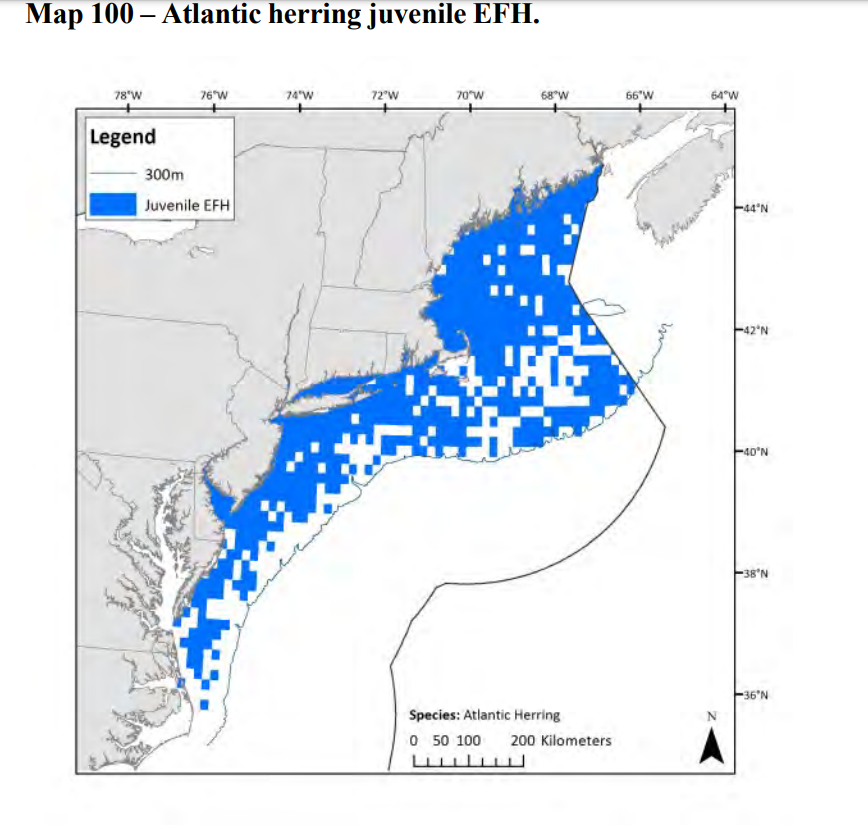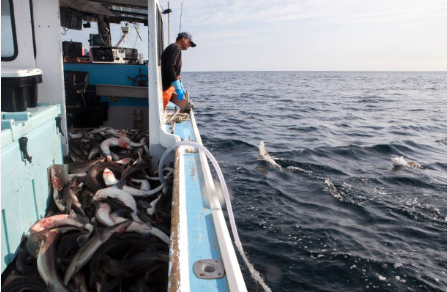Responsibility of Fishermen
Individuals and enterprises who utilize their right to fisheries carry significant ethical responsibilities as stewards of marine resources.

EFH and HAPC Designation Alternatives and Environmental Impacts, map of herring range, 2022
Anglers responsibilities
Supporting Argument #4.1: Recreational fishers have a responsibility to act as stewards of marine resources, practicing sustainable fishing methods and respecting catch limits to protect fish populations, this is to maintain a healthy fishery
Recreational fishermen are responsible for a significant portion of fish mortality in many popular species. For example, in the case of striped bass, anglers are responsible for 90% of fishing mortality, while commercial fishermen account for only 10%(Atlantic Striped bass)
This highlights the substantial impact recreational fishing can have on fish populations. Recreational fishermen must recognize their collective impact and take responsibility for conservation efforts, including adhering to catch limits and supporting sustainable fishing practices.
Fishing directly funds conservation through license sales and excise taxes. Each year, the Sport Fish Restoration Program distributes millions of dollars to state fish and wildlife resource agencies for restoration, access, and enhancement projects across the country (celestino)
This evidence demonstrates that recreational fishermen already play a crucial role in conservation efforts. One of the responsibilities anglers have is paying the fees that help sustain the fishery. Recreational fishermen are stewards of the resources they utilize.
Responsiblies of Comercial Fishermen

Getty Images, commercial fishing boat with many dead fish, 2016
Commercial fishing enterprises carry significant responsibilities as major users of marine resources. They must balance profit motives with sustainable harvesting practices and recognize that they are utilizing a public resource that requires careful stewardship.
The privilege to fish, a conditional right often nefariously perceived as a legislated right implies ethical responsibilities linked to marine stewardship (Lam)
This evidence is fundamental to understanding commercial fishing responsibilities. The text explicitly challenges the notion that fishing is an absolute right, instead framing it as a privilege that comes with obligations
"private fishing enterprises and corporations can be encouraged, with socioeconomic incentives and environmental laws, to adopt social responsibility in their use of public goods and to bear the ecological costs of fishing currently borne by global society." (Lam)
This acknowledges that fisheries are "public goods," not private resources. Second, it points out that commercial fishing often affects others. Finally, it suggests that a combination of economic incentives and regulations is needed to ensure responsible commercial fishing practices.